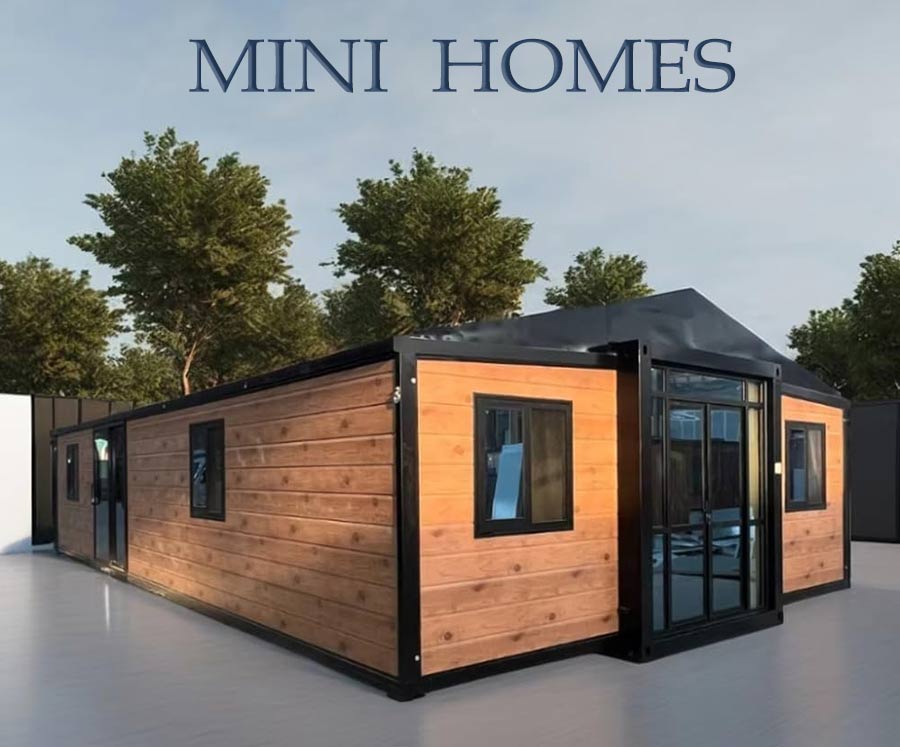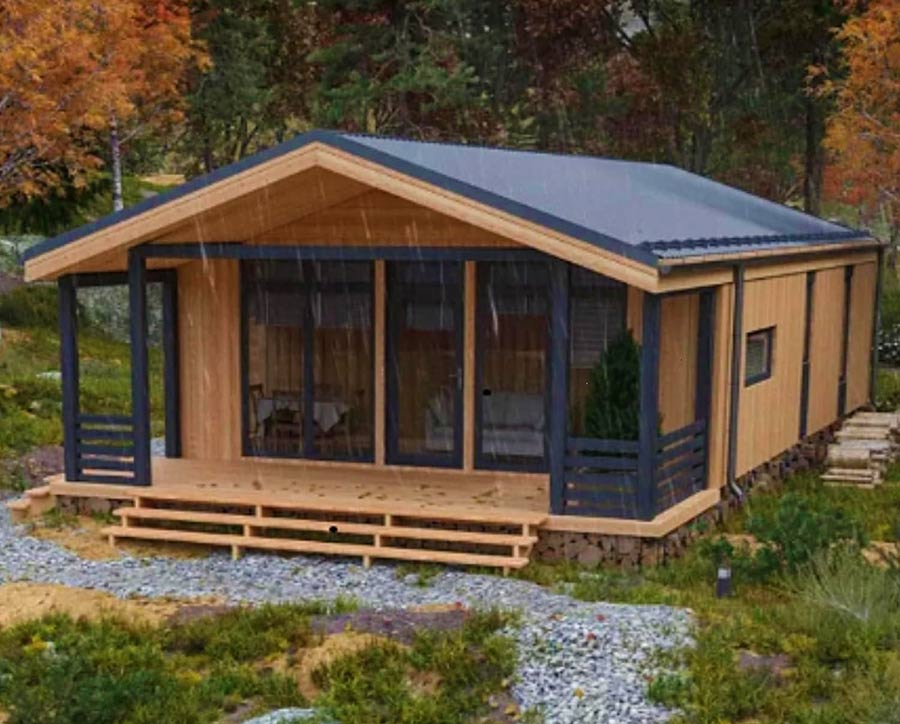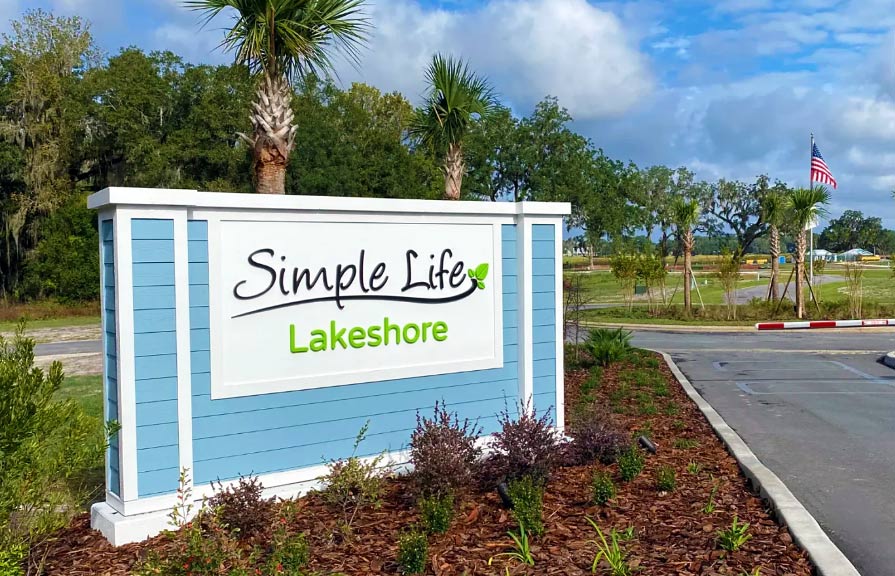Mini Homes & Tiny Home Housing
Exploring the World of Mini Homes
In an era where simplicity and sustainability are becoming lifestyle choices, mini homes—often called tiny homes—have emerged as a popular solution for modern living. These compact, versatile spaces are not just about downsizing but about optimizing. Whether used as full-time residences, vacation getaways, or functional home offices, mini homes cater to a diverse range of needs and aspirations. This guide will explore whether a mini home is right for you, how to navigate zoning laws, tips for purchasing and installing, and much more.
Mini homes are more than just a trend—they represent a shift towards mindful living. With rising housing costs and a growing emphasis on environmental responsibility, many are turning to these small-scale solutions for big benefits. From cutting utility bills to fostering community living, mini homes redefine how we think about space and functionality.
Using a Mini Home as an Office
In the era of remote work, mini homes make excellent home offices. They provide a dedicated space for productivity without the distractions of a shared household. Here are some benefits:
- Privacy: Separates work life from home life.
- Cost-Effective: Cheaper than renting office space.
- Customization: Tailor the layout to suit your professional needs.
- Energy Efficiency: Mini homes are often designed with sustainable energy solutions like solar panels.
Tip: Before converting a mini home into an office, check local ordinances to ensure compliance with zoning laws.
Mini Home Ordinances: Can You Put One in Your Backyard?
Zoning and permitting laws vary widely by location. Here are some key considerations:
- Accessory Dwelling Unit (ADU) Rules: Many cities allow mini homes as ADUs, but specific requirements, such as size limits and placement, apply.
- Utilities: Check regulations for connecting water, sewer, and electricity.
- Setback Requirements: Ensure your mini home complies with minimum distance rules from property lines.
- HOA Restrictions: Homeowners’ associations may impose additional guidelines.
Who to Contact: Start by reaching out to your local city or county planning department. They can provide detailed information on zoning laws, permits, and requirements specific to your area. Additionally, consulting a local real estate attorney or land use expert can be helpful for navigating complex regulations.
Pro Tip: Consult your local planning department to avoid costly surprises.
Tips for Buying and Installing a Mini Home or Tiny House
Define Your Purpose:
Are you seeking a full-time residence, a rental property, or a backyard office? Knowing your goal will guide design and budget decisions.
Research Builders:
Choose a reputable builder with experience in mini homes. Check reviews and request references.
Consider Mobility:
Decide whether you want a mobile tiny house or a stationary unit. Mobile options require additional considerations like trailer specifications and towing permits.
Plan Utilities:
Mini homes may need connections to existing utilities or alternative solutions like composting toilets and rainwater collection systems.
Secure Financing:
Many financial institutions now offer loans specifically for mini homes. Compare rates and terms.
DIY vs. Professional Installation:
Installing a mini home yourself can save money, especially if you opt for a DIY kit. However, professional assistance is recommended for tasks like foundation preparation, utility hookups, and ensuring compliance with local building codes.
- When to DIY: If you have construction experience and the mini home comes with clear instructions. Look for home that offer DIY kits.
- When to Hire Professionals: For complex installations or if local ordinances require certified contractors for permits.
Tip: Always check your local regulations to ensure proper installation practices.
Mini Home Communities in the USA
Communities of mini homes are sprouting up nationwide, offering a sense of camaraderie among residents who share a passion for minimalist living. Popular communities include:
- Escalante Village (Durango, CO): Features eco-friendly designs and communal spaces.
- Park Delta Bay (Isleton, CA): Offers waterfront living for tiny home dwellers.
- The Sanctuary Minnesota (Ogilvie, MN): Combines tiny living with nature.
Mini Home Communities in New England and Florida:
- New England: Look for developments like Tiny House Village at Tuxbury Pond RV Resort in New Hampshire or the Getaway Boston outposts in Massachusetts. These communities blend tiny living with natural surroundings.
- Florida: Explore Orlando Lakefront at College Park, a welcoming community of tiny homes with lakeside views, or Simple Life Community in Ocala, which emphasizes active and minimalist living.
Mini Home Manufacturers
The growing demand for mini homes has spurred numerous manufacturers specializing in innovative and high-quality designs. Here are some of the top mini house manufacturers:
- Tumbleweed Tiny House Company: Known for its customizable and eco-friendly tiny homes.
- Escape Homes: Offers modern and stylish designs with high-end finishes.
- Tiny Heirloom: Specializes in luxury tiny homes with bespoke options.
- New Frontier Tiny Homes: Renowned for architectural flair and craftsmanship.
- Clayton Homes: A leading builder of prefabricated homes, including tiny home options.
Are Mini Homes Made in the USA?
Yes, many mini homes are manufactured in the USA, ensuring quality and adherence to domestic building standards. Manufacturers like Tumbleweed, Escape Homes, and Clayton Homes have production facilities across the country, supporting local economies and reducing the carbon footprint associated with international shipping.
Mini Home Prices, Options, and Common Practices
Pricing: Mini homes range from $30,000 to $150,000, depending on size, materials, and customization.
Mini Home Options:
- Prefabricated Models: Affordable and quicker to assemble.
- Custom Builds: Tailored designs for specific needs.
- DIY Kits: Economical for hands-on homeowners.
Common Practices:
- Opt for energy-efficient appliances to reduce utility costs.
- Use multi-functional furniture to maximize space.
- Incorporate outdoor areas like decks to extend living space.
Is a Mini Home Right for You?
Mini homes offer flexibility, affordability, and the chance to embrace a simpler lifestyle. Whether you’re looking for a primary residence, a home office, or an investment property, mini homes can meet diverse needs. However, it’s essential to research local ordinances, weigh the pros and cons, and plan carefully.
For more information and updates about mini homes, tiny houses, and prefab homes, bookmark FreeWorldMall.com.
Tiny Homes





